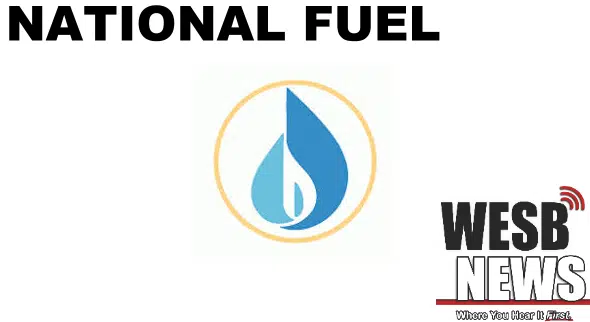National Fuel advises homeowners to be prepared and safe this winter and pay attention to outdoor gas meters, furnaces and vents. Snow, ice and extreme cold temperatures can pose a variety of issues for heating systems. Ensure outdoor gas meter safety and proper service by:
• Keeping the gas meter and area around the meter free of snow and ice.
• Clearing paths to the meter.
• Informing those working, shoveling, plowing or snow blowing of the meter location.
• Not letting children play or climb on the meter.
• Exercising caution when removing icicles from the meter or the area above it.
• Calling National Fuel, 1-800-365-3234, if a meter becomes encased in ice.
Natural gas furnace exhaust vents can become easily clogged by debris, ice or snow, causing the furnace to shut off or operate inefficiently. Blocked vents also can lead to a buildup of carbon monoxide (CO) gas inside a residence. CO is a colorless, odorless and dangerous gas produced when fuel is burned without enough air for complete combustion. CO poisoning can cause extreme illness and death. Symptoms include fatigue, coughing, headache, irregular breathing, dizziness, overall paleness, nausea and cherry red lips and ears. Open windows and doors, move outside and call 911 immediately if experiencing symptoms. Avoid a CO emergency by:
• Having a professional inspect and test chimney and heating equipment annually.
• Install at least one CO detector.
• Never use a gas oven or stovetop for heating.
• Never run a gasoline engine, generator or automobile in an enclosed space.
• Never use a portable charcoal or propane grill indoors.
Smell gas, leave fast! If a rotten-egg natural gas odor is present, leave the premises immediately and call National Fuel’s emergency line, 1-800-444-3130, from a different location. If you smell gas outdoors, call National Fuel’s emergency number and provide the address nearest to the site of the odor.
Efficiency Tips: Customers can save money this winter and help the environment by becoming more energy efficient. Small, inexpensive adjustments include:
• Using caulk or weather-stripping to prevent heat from escaping.
• Buying a programmable thermostat or setting thermostats between 65° and 70° during the winter and at 58° when away from the house.
• Closing vents and doors in unused rooms, closing dampers on unused fireplaces and using registers to direct warm airflow across the floor.
National Fuel Gas Distribution Corporation is the Utility segment of National Fuel Gas Company, a diversified energy company that is engaged in a number of natural gas-related activities. The Utility provides natural gas service for 2.2 million residents in Western New York and Northwestern Pennsylvania. For more information, visit www.nationalfuel.com.
Winter Weather Safety Reminders from National Fuel


